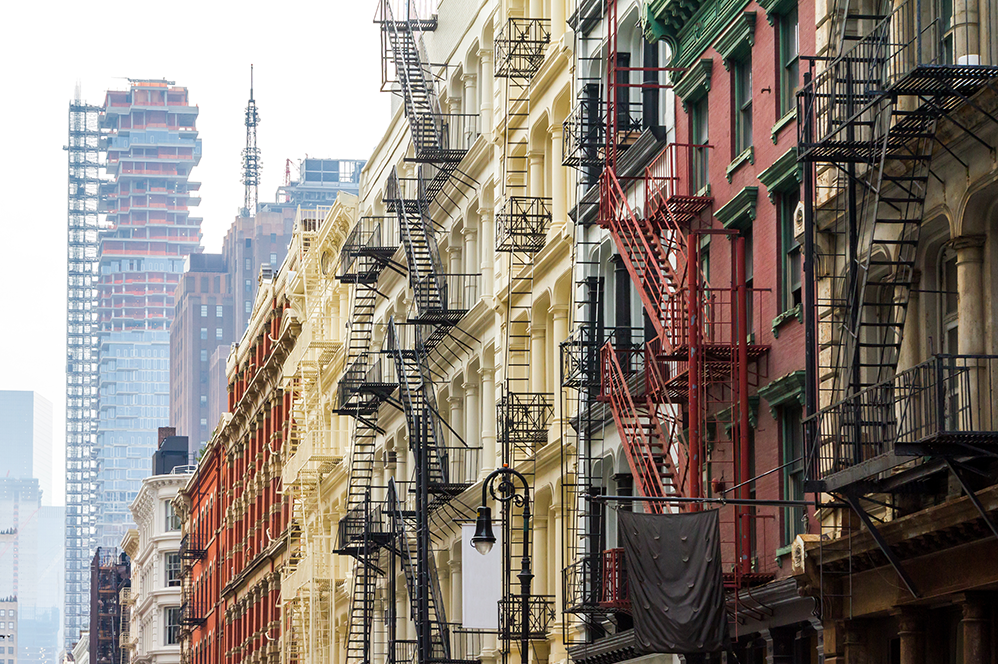Comptroller Stringer Report: NYC Renters Paid an Additional $616 Million in 2016 Due to Airbnb

Stringer report finds Airbnb responsible for nearly 10 percent of citywide rental increase between 2009 and 2016
Tenants in Murray Hill, Gramercy, Stuyvesant Town, Williamsburg, and Greenpoint pay an average of more than $100 per month in additional rent due to Airbnb listings
Airbnb exacerbating NYC’s affordability crisis
(New York, NY) — In the midst of an affordability crisis fueled by rising rents, a new report released today by New York City Comptroller Scott M. Stringer found renters citywide paid a whopping $616 million in additional rent in 2016 due to the exponential growth of Airbnb listings. The new analysis sheds light on how Airbnb listings, particularly in neighborhoods where they are most heavily concentrated, exacerbate New York City’s affordability challenges and make it harder for working- and middle-class families to make ends meet.
Comptroller Stringer’s groundbreaking report – the first that’s empirically estimated a monetary impact on New Yorkers due to Airbnb’s rapid growth – shows how tenants in neighborhoods from Chelsea to Bushwick have seen their rents skyrocket in no small measure because of the heavy concentration of Airbnb listings in their communities. Comptroller Stringer’s report drills down to the neighborhood level and analyzes data for the years 2009 to 2016. Among the Comptroller’s findings:
- Airbnb listings were heavily concentrated in parts of Manhattan and Brooklyn and had a greater impact on these neighborhoods. Approximately 20% of the increase in rental rates was due to Airbnb listings in midtown and lower Manhattan, including neighborhoods such as Chelsea, Clinton, and Midtown Business District; Murray Hill, Gramercy, and Stuyvesant Town; Chinatown and Lower East Side; Battery Park City, Greenwich Village, and Soho.
- In aggregate, New York City renters had to pay an additional $616 million in 2016 due to price pressures created by Airbnb, with half of the increase concentrated in the neighborhoods highlighted above;
- For each one percent of all residential units in a neighborhood listed on Airbnb, rental rates in that neighborhood went up by 1.58 percent.
- Between 2009 and 2016, approximately 9.2 percent of the citywide increase in rental rates can be attributed to Airbnb.
“For years, New Yorkers have felt the burden of rents that go nowhere but up, and Airbnb is one reason why. From Bushwick to Chinatown and in so many neighborhoods in-between, affordable apartments that should be available to rent never hit the market, because they are making a profit for Airbnb,” said New York City Comptroller Scott M. Stringer. “Airbnb has grown exponentially at the expense of New Yorkers who face rising rents and the risk of being pushed out of communities they helped build. If we’re going to preserve the character of our neighborhoods and expand our middle class, we have to put people before profits. It’s that simple.”
New Yorkers have been squeezed by rapidly rising rents, which rose 25% on average citywide between 2009 and 2016, or $279 per month. Rents rose most rapidly in Brooklyn, by 35% ($340 per month) followed by Queens by 22% ($242 per month); The Bronx by 21% ($171 per month); Manhattan by 19% ($276 per month); and Staten Island by 14% ($129 per month).
During the same period, Airbnb listings skyrocketed, from 1,000 in 2010 to over 43,000 in 2015, before declining to slightly under 40,000 in 2016 according to data from AirDNA – most in violation of existing State or City laws.
Airbnb listings are most heavily concentrated in Manhattan, which accounted for 52% of all listings in 2016, and Brooklyn, with 35% of all listings in 2016, but are found in every borough. In 2016, Airbnb listings are particularly concentrated in Manhattan below 59th Street and in parts of Brooklyn, including:
- Chelsea, Clinton and Midtown Business District – 11.3% of citywide listings;
- Battery Park City, Greenwich Village and Soho – 7.9%;
- Chinatown and Lower East Side – 6.9%;
- Murray Hill, Gramercy and Stuyvesant Town – 5.9%;
- Greenpoint and Williamsburg – 8.3%;
- Bedford-Stuyvesant – 5.1%;
- Bushwick – 5.0%.
Airbnb Driving up Rents
The share of Airbnb listings ballooned to 4.1% of all residential units in the Chelsea, Clinton and Midtown Business District neighborhood and 4.6% in Greenpoint and Williamsburg in 2016. The largest relative Airbnb effects on the rental market occurred in Chelsea, Clinton and Midtown Business District (21.6%) and Murray Hill, Gramercy & Stuyvesant Town (21.5%). Average monthly rents went up in these neighborhoods by $398 and $488 respectively, of which $86 and $105 per month could be attributed to Airbnb’s exponential growth.
The largest absolute effect occurred in Greenpoint and Williamsburg where average rents increased by $659 between 2009 and 2016, of which $123 can be attributed to Airbnb’s growth.
And overall, rents in the eight neighborhoods highlighted above rose at substantially higher rates than the borough average between 2009 and 2016.
By neighborhood, during this time period average monthly rent up by:
- Greenpoint and Williamsburg – 62.6% ($659 per month)
- Bedford-Stuyvesant – 47.2% ($407 per month)
- Bushwick – 39.5% ($369 per month)
- Murray Hill, Gramercy and Stuyvesant Town – 25.9% ($488 per month)
- Chelsea, Clinton and Midtown Business District – 23.4% in ($398 per month)
- Chinatown and Lower East Side – 23% ($242 per month)
- Battery Park City, Greenwich Village and Soho – 21.4% ($411 per month).
In this report, Comptroller Stringer sought to measure the “Airbnb effect” by the removal of units from the rental market because they were listed on Airbnb by the owners instead. The Comptroller’s office compared the growth in what rents would have been if there had been no Airbnb effect to what they actually were. Citywide, the report found that the loss of supply due to Airbnb listings drove rents up by an additional 9.2% between 2009 and 2016, after taking into account other factors that drive rent increases.
###